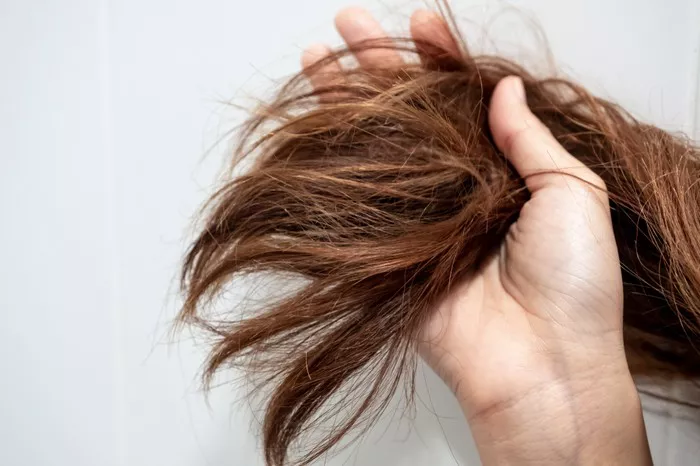Hair is not just an accessory; it’s a reflection of our overall health and vitality. However, many of us struggle with dry, brittle hair, which can be attributed to various factors such as excessive heat styling, environmental pollutants, and, most importantly, inadequate nutrition. Dry hair lacks the necessary moisture and oils required for smoothness and shine, leading to frizz, breakage, and overall dullness. Fortunately, incorporating essential vitamins into our diet can help address this common hair concern.
Essential Vitamins for Hair Health
When it comes to combating dry hair, certain vitamins stand out for their remarkable ability to nourish and rejuvenate your locks from within. Among these are Vitamin A, Vitamin C, Biotin (Vitamin H), and Iron.
Role of Each Vitamin
1. Vitamin A: This fat-soluble vitamin is crucial for maintaining healthy hair follicles and scalp. It aids in the production of sebum, a natural oil that moisturizes the scalp and keeps hair hydrated. Without sufficient Vitamin A, the scalp can become dry and flaky, leading to brittle hair prone to breakage.
2. Vitamin C: As a powerful antioxidant, Vitamin C plays a vital role in collagen synthesis, which is essential for hair strength and elasticity. It also helps in the absorption of iron, another important nutrient for healthy hair growth. Lack of Vitamin C can result in weak, dry hair that is susceptible to damage.
3. Biotin (Vitamin H): Biotin is often hailed as the “hair growth vitamin” due to its role in metabolizing amino acids, the building blocks of protein. Since hair is primarily composed of protein, adequate biotin levels are necessary for strong, resilient strands. Additionally, biotin deficiency has been linked to hair thinning and brittleness.
4. Iron: Iron deficiency is a common cause of hair loss and dryness, as it is essential for the production of hemoglobin, which carries oxygen to the hair follicles. Without an adequate supply of oxygen, the hair follicles may become weak and fragile, leading to dry, lackluster hair.
Natural Sources of Each Vitamin
Incorporating foods rich in these vitamins into your diet can significantly improve the health and appearance of your hair. Some natural sources include:
Vitamin A: Sweet potatoes, carrots, spinach, kale, and liver.
Vitamin C: Citrus fruits, strawberries, kiwi, bell peppers, and broccoli.
Biotin: Eggs, nuts, seeds, salmon, avocado, and sweet potatoes.
Iron: Red meat, poultry, fish, lentils, beans, tofu, and spinach.
Supplementation
While a balanced diet should ideally provide all the essential nutrients for healthy hair, supplementation may be necessary in certain cases, such as individuals with dietary restrictions, malabsorption issues, or specific health conditions. However, it’s essential to consult with a healthcare professional before starting any supplement regimen to avoid potential side effects or interactions with other medications.
Additional Hair Care Tips
In addition to incorporating vitamins into your diet, adopting certain hair care practices can further enhance the health and appearance of your hair:
1. Limit Heat Styling: Excessive use of heat styling tools can strip the hair of its natural oils, leading to dryness and damage. Whenever possible, opt for air-drying or use heat protectant products before styling.
2. Protect from Environmental Damage: UV rays, pollution, and harsh weather conditions can take a toll on your hair. Wear a hat or use products with UV protection to shield your locks from environmental aggressors.
3. Avoid Overwashing: Washing your hair daily can strip away the natural oils, leaving it dry and brittle. Aim to wash your hair 2-3 times a week, using a sulfate-free shampoo and conditioner.
4. Regular Trims: Regular trims are essential for getting rid of split ends and preventing further damage. Schedule a trim every 6-8 weeks to keep your hair healthy and vibrant.
Myths vs. Facts
There are several myths surrounding vitamins and their role in hair health, particularly biotin. While biotin supplementation can indeed promote hair growth in individuals with biotin deficiency, it may not necessarily have the same effect on everyone. Additionally, excessive biotin intake can lead to unwanted side effects such as acne and digestive issues. It’s essential to consume biotin in moderation and focus on maintaining overall nutritional balance for optimal hair health.
Consultation Reminder
While vitamins can undoubtedly play a significant role in improving the health of your hair, it’s essential to remember that individual needs may vary. For personalized advice tailored to your specific requirements, consult with a healthcare professional or a registered dietitian. They can assess your dietary habits, address any underlying deficiencies, and recommend appropriate supplements or dietary adjustments to support your hair health goals.
In conclusion, achieving luscious, healthy hair is not just about using the right products; it’s also about nourishing your body from the inside out. By incorporating essential vitamins into your diet, practicing good hair care habits, and seeking professional guidance when needed, you can unlock the secrets to vibrant, beautiful locks that shine with vitality.


